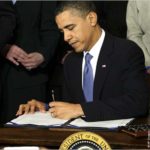This story was originally published by Chalkbeat, a nonprofit news organization covering public education in communities across America. Sign up for our free New York newsletter to keep up with NYC’s public schools.
The day before my first day of teaching middle school in 2018, I decorated my Brooklyn public school classroom with quotes from famous people reflecting on the importance of reading. Hanging on cream-colored cardstock were the words of Malcolm X, Toni Morrison, C.S. Lewis, Barack Obama, Maya Angelou, and dozens of other writers and thinkers. I hoped to inspire my students to fall in love with reading. I didn’t think to hope that all my students could do the very thing I was asking them to love. I didn’t know that part of my job as a sixth grade Humanities teacher would be to teach students to read in the first place.
There was a round table in the very back of my classroom that a group of five sixth-graders bee-lined to on day one. On day two, I asked one, then another, to read aloud to me. My request was met with silence, guessing, a fist slammed on the table, and a student storming out of the room. When those sixth grade students finally sat down for a reading assessment, their ability to decode print text was at a first or second grade level.…Read More

 At “ConnectEd to the Future,” President Barack Obama celebrated the work of the 100 most innovative school leaders in the US. Watch as Dr. Adams receives special mention. Video courtesy of The White
At “ConnectEd to the Future,” President Barack Obama celebrated the work of the 100 most innovative school leaders in the US. Watch as Dr. Adams receives special mention. Video courtesy of The White